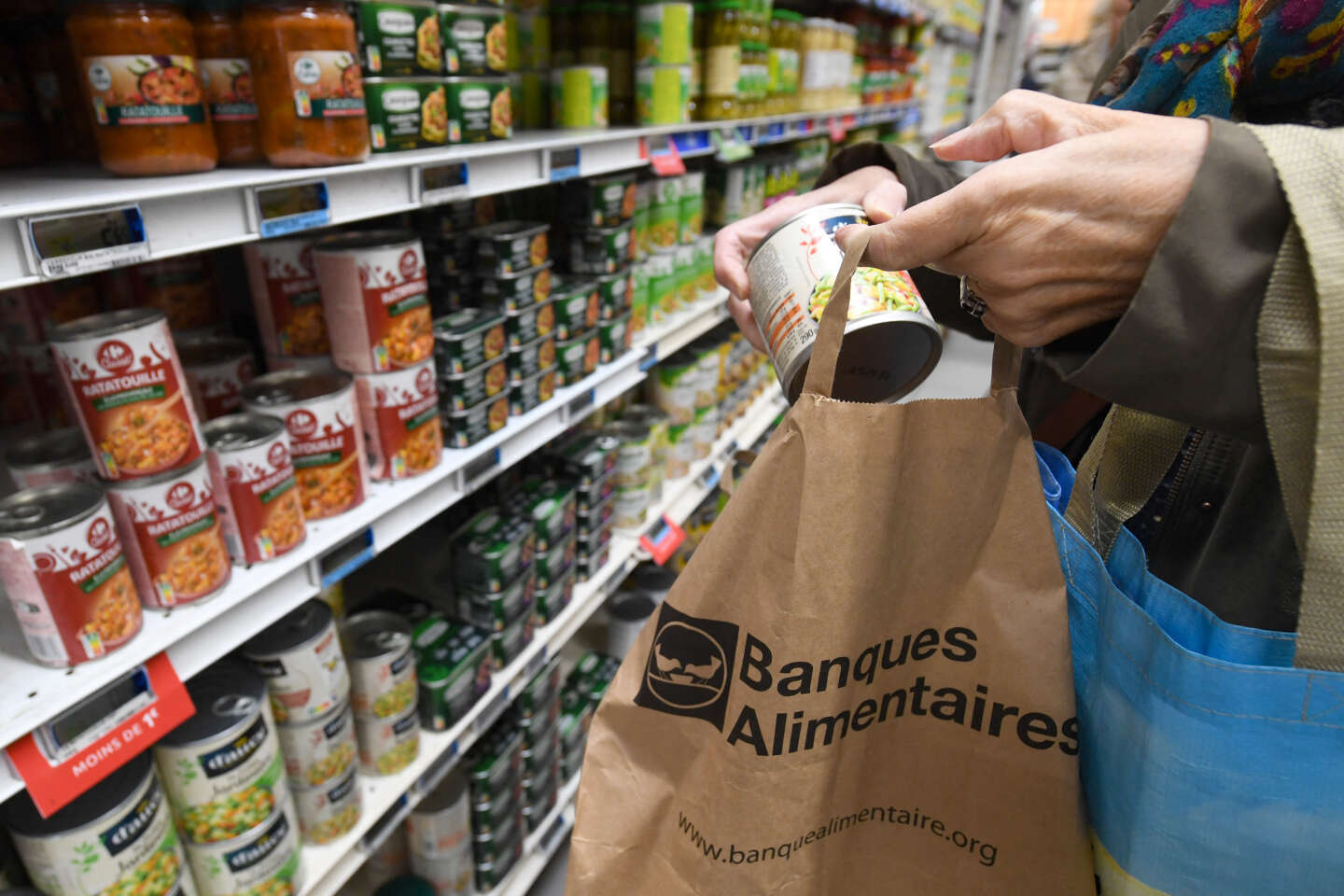
Food banks are at the forefront of increasing insecurity. According to figures presented on Monday February 26 at the International Agricultural Fair in Paris, the number of people admitted to France’s first food aid network has increased by almost 30% in three years (including + 8 to 9% for 2023 ). to reach 2.6 million people.
The profile of the population being looked after is changing: While single people make up the majority (41%), followed by single-parent families (31%), the proportion of young people is increasing (+19% in five years) and with it also of workers. poor. Today, 17% of people admitted have a job, the majority (60%) of whom have a permanent contract but earn less than the minimum wage.
Behind the social difficulties there is also a health risk. To understand the impact of food insecurity on health, the network conducted a new study. their results were released on Monday.
The survey was carried out between October and December 2023, with methodological support from Action Against Hunger, among 140 people welcomed during the network’s health prevention workshops. The sample is modest, but the study is expected to be completed in 2024 and 2025 with other components, particularly interviews.
“Respondents to our survey are generally aware of the connection between diet and healthnotes Barbara Mauvilain, director of institutional relations at the Federation of Food Banks. They eat mainly home-cooked meals and more than half eat legumes more than twice a week, bringing them closer to the recommendations of the National Nutrition and Health Program. »
Health problems
Among the points of concern: a third of them eat only two meals a day or less. In addition to the price issue, the lack of cooking utensils at home is also one of the barriers to adopting good nutritional practices: 6% of respondents do not have a refrigerator, 9% do not have a hotplate and 10% do not have an oven. These results confirm previous studies, in particular a survey of the VRAC network – a structure that offers quality food in a short time at social prices – carried out in priority districts. published in November 2023which pointed to the same obstacle related to precarity and housing structure.
The food bank survey shows that health problems are over-represented among workshop participants: a quarter of respondents reported being in poor or very poor health; a third reported cardiovascular problems or overweight and obesity; 15% are diabetic, compared to 5% in the general population. “The number of diabetics in France has doubled in fifteen years and will continue to rise”comments Bastien Roux, general director of the French Diabetics Association, who recalls that type 2 diabetes (which accounts for more than 90% of diabetes cases in France) is geographically very unevenly distributed (with the prevalence being twice as high in the overseas departments as in the mainland). France) and according to the social gradient, with the risk of diabetes being three times higher for those entitled to universal health insurance.
You still have 39.23% of this article left to read. The rest is reserved for subscribers.





